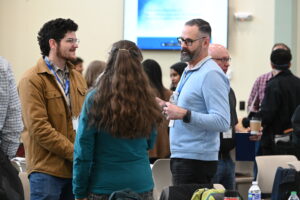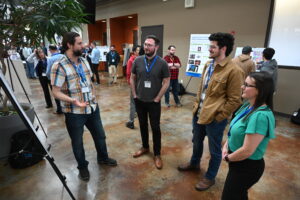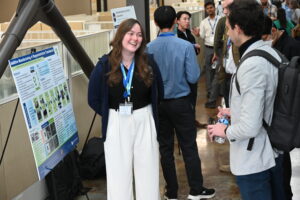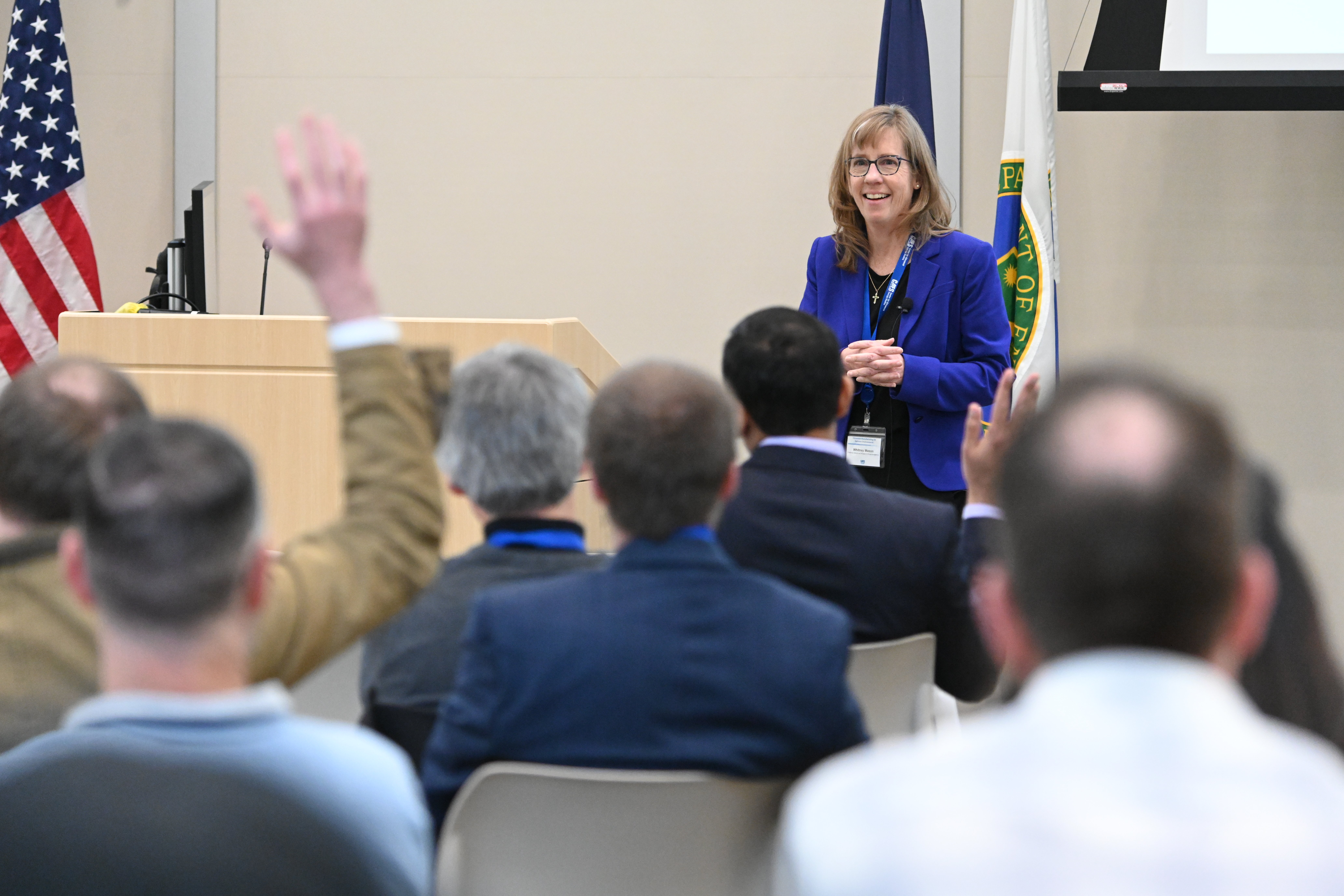Boise State University (BSU), a partner in the Center for Advanced Energy Studies (CAES) consortium, hosted an Advanced Manufacturing for Extreme Environments Workshop in Idaho Falls on March 26 and 27. The audience was comprised of over 120 researchers and content experts, members of academia, students and industry professionals.
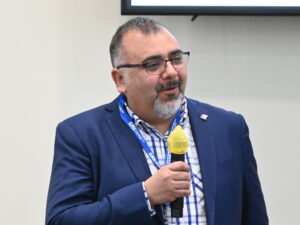
According to BSU professor and CAES Associate Director Dave Estrada, the overall purpose for the workshop was simple. “The goal was to build a community of advanced manufacturing (AM) researchers who can actively share their research and capabilities across the discipline,” said Estrada.
Attendees from 12 states and over 20 organizations discussed a variety of crucial topics in AM with an emphasis on microelectronics and structural AM for extreme environments. They highlighted the AM challenges seen in space, deep earth and nuclear where high temperature, radiation, corrosive environments and high pressures can affect materials and devices.
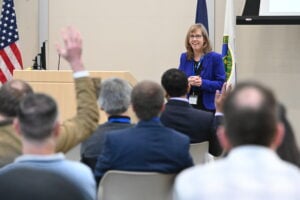
Keynote speaker Dr. Whitney Mason, director of the Microsystems Technology Office at the Defense Advanced Research Projects Agency (DARPA), reinforced the benefits that arise through collaboration. Her presentation, “Perspectives on Advanced Manufacturing in and for Extreme Environments,” shared how supporting people, processes and culture are essential in developing breakthrough technologies and capabilities for national security.
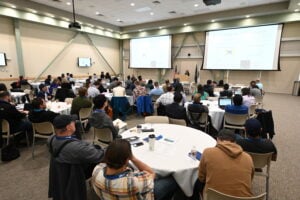
Additionally, attendees visited CAES to see the infrastructure and learn about research capabilities. The workshop wrapped up with an invitation to provide feedback on future prioritization of major instrumentation procurement strategies. They were tasked to start discussions to identify subareas of AM where collaborating could help solve some of the identified challenges. The information will be used to develop a report to leverage academic-industry-government partners to secure future funding.
“We hope participants felt they spent valuable time learning about cutting-edge AM research and enhancing their network of collaborators,” said Estrada. “We’re excited to hear about the future partnerships, innovations and research advancements that developed from the connections made at the workshop.”
